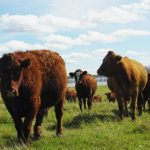The World Trade Organization has looked at Alberta’s Farm Income Disaster Program and found nothing wrong with it, says the province’s agriculture minister.
“It came up clean,” he said. “There were no objections, there were no concerns, there were no questions asked, ” said Walter Paszkowski.
But the Saskatchewan government isn’t making any bets
“Whether it is a GATT-green program or not remains to be seen. Is this akin to me sending a note to the court saying I’m going to rob a bank and they don’t send anything back, so it’s acceptable?” said Saskatchewan Agriculture’s director of policy Hal Cushon.
Read Also

British Columbia farmers to receive increased AgriStability supports
B.C. farmers to receive bump in AgriStability compensations due to weather concerns, international trade instability
The General Agreement on Tariffs and Trade, or GATT, is an international trade deal that established the WTO.
The WTO doesn’t approve programs but it circulates copies of submitted programs to its members. If members have objections, they report back.
No news is good news
Paszkowski said he asked the federal government to submit the Alberta program to the WTO to make sure it was allowable under world trade rules.
The policy was looked at and no objections from any country were raised. Paszkowski said that makes it difficult for any country, such as the United States, to complain in the future.
The lack of foreign government reaction to the Alberta program should also silence critics of the Alberta program, Paszkowski said.
“They don’t have a leg to stand on now when they’re criticizing that program.”
Recently, New Democrat MP Len Taylor questioned federal agriculture minister Ralph Goodale in the House of Commons about potential international dangers in the provincial program.
Goodale said he was concerned as well.
Fear of U.S. reaction
Saskatchewan agriculture minister Eric Upshall has questioned the program’s risk of causing American retaliation. He suggested it may be an attempt to give the Alberta cattle feeding industry an advantage over competing provinces.
Even if the Alberta program is acceptable under WTO rules, the international aspect is not the main issue anyway, said Cushon.
“People are starting to recognize that you can maybe meet the WTO requirements, but it still may be production distorting,” he said. “The real problem we have to answer is, is it production distorting in Canada.”
Cushon said Saskatchewan cattle feeders see the program as a subsidy to Alberta cattle producers that could lend the Alberta industry an unfair advantage.
Cushon said the most disturbing aspect of Alberta’s program is it goes against agreements to end competing provincial schemes and move to a national system.
The Alberta program, in its first year, is free to producers until they apply for benefits, which they receive if their income falls below 70 percent of the three-year average gross income of the farm.
This year there have been about 62,000 claims from the 1995 crop year, averaging $11,500 per claim. That places the program’s cost at about $71 million this year.
















